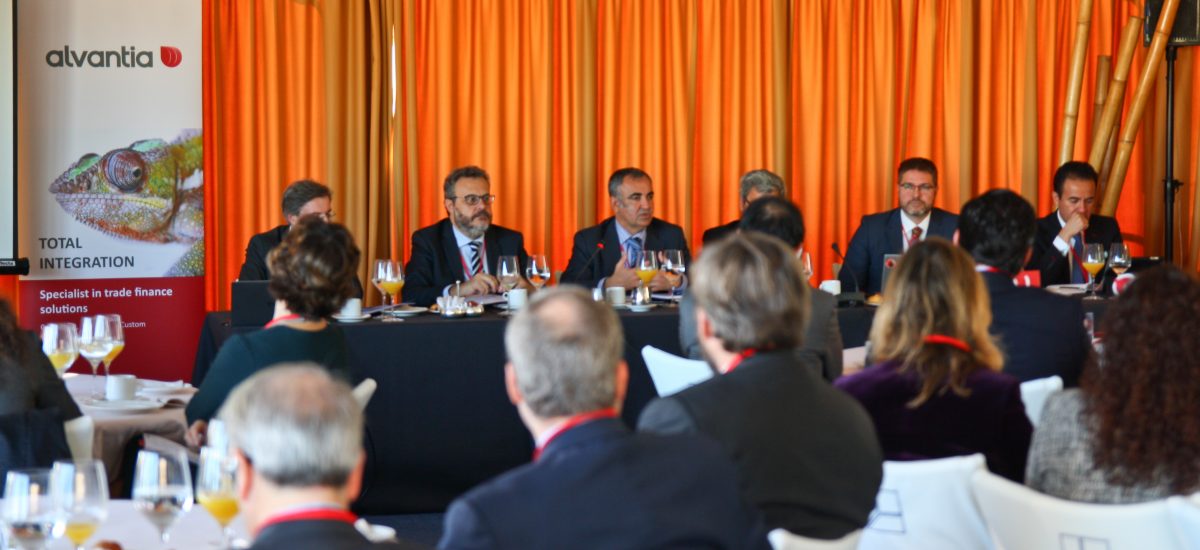On 15 November, at the incomparable venue of the Genova Financial Club in the Columbus Towers in Madrid, we celebrated the breakfast meeting “Factoring public debtors within the framework of electronic invoicing in Spain: challenges and opportunities”.
As a leading technological company in the working capital financing solutions sector, we organised this breakfast meeting at Alvantia with the aim of tackling issues of current interest, which are eligible for open debate and affect our relevant market.
The meeting was attended by the president of the Spanish Factoring Association (Asociación Española de Factoring – AEF) as well as the president of the Mexican Association of Financial Factoring (Asociación Mexicana de Factoraje Financiero – AMEFAC) on behalf of and representing the private operators and, on the other hand, by three representatives from the Subdirectorate General for the Promotion of Digital Administration and from the Spanish Tax Agency (AEAT), on behalf of the Public Administrations.
Attendees also included a great number of people representing the AEF member financial entities and financial credit establishments, along with the main insurance companies specialising in credit insurance and an additional group of non-AEF member credit assignment operators.
The objective of the meeting was to share and debate advances made in the implementation of electronic invoicing in Spain. The meeting was greatly enhanced by including the successful example of the advanced development of electronic invoicing in Mexico and its impacts on credit assignments in the country.
Electronic invoicing is already being implemented in the Spanish market, and this has been especially true since January 2015, when Public Administrations were obliged to issue invoices electronically. This has had a direct impact on the credit assignment sector not only in terms of the public sector, but also in terms of its forthcoming and imminent expansion into the private sector.
The degree of progress with regards to interaction between electronic invoicing and credit assignments is already very significant. In fact, at present, the following milestones have already been reached:
o Electronic invoicing takes credit assignment processing into account.
o Details of the credit assignee are included in the invoice.
o The different statuses in which the invoice may be found concerning its payment by the Public Administrations are incorporated. This directly impacts upon the documentary support of the credit assignments.
However, questions relating to how to manage invoices when they are forwarded to third parties are yet to be resolved:
o Extent of development of credit assignment. In particular, what requirements and/or documentation is required by Public Administrations in order to identify the assignee (assignment contract provided between assignor and assignee), procedure when there are various assignors with different levels of involvement…
o Extent of the possibility of the invoices being consulted by the assignor, as the valid payee of such.
All of the above points were expressly dealt with in the meeting. It became apparent that there is a clear need to increase efforts in terms of collaborations between the different parties involved in order to achieve an adequate balance between the different interests at stake and best practices, which are aligned with the irreversible process of digitalisation; all of this being protected by the necessary legal security.
In short, this breakfast meeting provided:
o The opportunity to achieve a greater level of coordination between the different parties, strengthening the channels with all contributions.
o A challenge for the technological partners, who should adapt their solutions to satisfy the needs of the assignees, assignors and debtors in such a way that the relationship between the invoices and credit assignments allows us to maximise the growth of this market.
Below you will find an image gallery with photos from the breakfast meeting.


